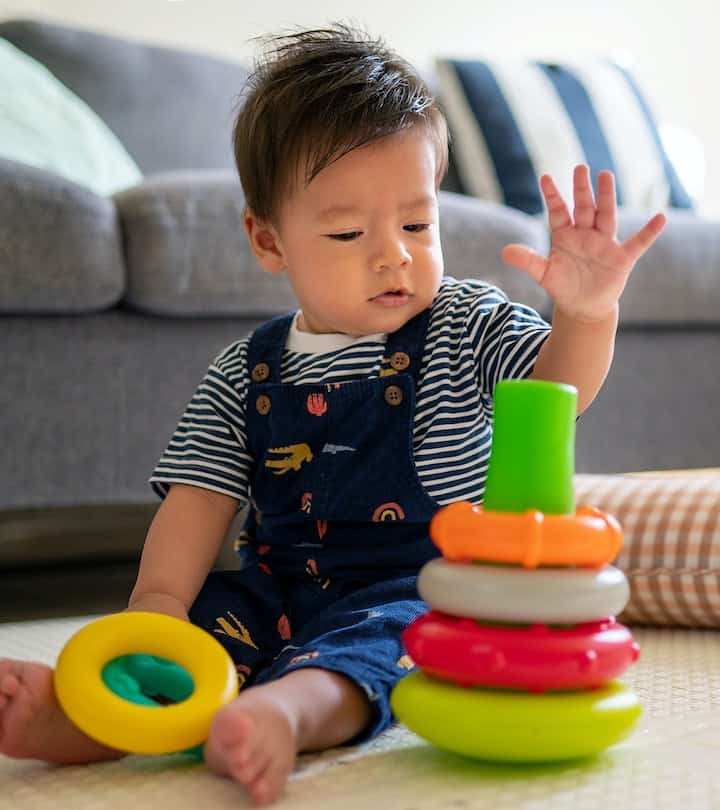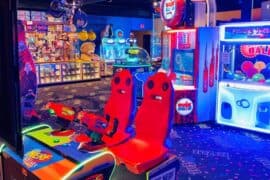Choosing the Best Developmental Toys for Your 6-Month-Old
Hello there, super parents! Are you on the hunt for the perfect toys to help your adorable 6-month-old reach new developmental milestones? Well, you’ve come to the right place! At this age, your little one is more awake to the world around them – and it’s an exciting time not just for them, but for you too. Let’s embark on this playful journey together to find the most stimulating and fun developmental toys that will make your baby’s eyes sparkle with delight!
Why Developmental Toys Matter at 6 Months
First off, let’s talk about why developmental toys are so essential at this stage of your baby’s growth. Around six months of age, infants are refining their senses and motor skills. They’re learning to sit up, grasp objects, babble, and understand their surroundings. Developmental toys are crafted to nurture these emerging abilities, give your baby new challenges, and encourage healthy brain development. They’re not just toys; they’re tools for growth!
Types of Developmental Toys for Your Little One
Now, let’s look at different kinds of toys that will support your baby’s developmental needs:
- Teethers and Chew Toys: At 6 months, teething is likely in full swing. Teethers don’t just soothe sore gums; they also provide tactile exploration and help with hand-eye coordination.
- Soft Books: It’s never too early for storytime! Cloth or soft plastic books with bold patterns and textures promote visual and tactile stimulation, and they’re just right for little hands to explore.
- Rattles and Shakers: Shake up playtime! Rattles encourage your baby to grasp and hold, teaching them cause and effect as they make joyful noises!
- Activity Gyms: Overhead toys on an activity gym can be a treasure trove of fun for back and tummy time, developing gross motor skills as your little one reaches for intriguing objects.
- High-Contrast Toys: Babies at this age are drawn to high-contrast colors. Toys with bold patterns help with visual development and attention focus.
Our Top Picks for Developmental Toys for a 6-Month-Old
We’ve got the scoop on some of the most engaging toys out there that are perfect for your six-month-old munchkin. All of our picks are designed to challenge and entertain, while giving those growing skills a big boost!
Baby Einstein Take Along Tunes Musical Toy
An all-time favorite, this musical toy not only entertains with classic tunes but also stimulates auditory development and encourages the appreciation for melody and rhythm.
Manhattan Toy Winkel Rattle & Sensory Teether Activity Toy
This mesmerizing maze of soft, continuous tubes provides a perfect teething toy, while the rattle in the middle adds a sound element to keep your little one interested.
Bright Starts Oball Shaker
It’s easy to grasp, super flexible, and makes a delightful rattle noise. The Oball Shaker is great for encouraging both fine and gross motor skills!
Remember, parents, the best toy for your baby is one that matches their curiosity and helps them discover new joys. Stay tuned for more delightful ideas and tips to make your baby’s playtime truly developmental. Happy playing!
But wait, there’s more! Our guide doesn’t stop here. We’ll also dive into the benefits of sensory play, the importance of safety while choosing toys, and how to create a balanced play environment that stimulates learning and development across all areas. So stick around for the next segment where we’ll continue to explore the marvellous world of developmental toys for your 6-month-old sunshine.

5 Things Parents Should Know in Preparing for Developmental Toys for 6-Month-Old
Embarking on the world of developmental toys for your 6-month-old is more than just picking up the latest and greatest gadgets. Here are five things parents should know:
1. Safety First
When exploring new toys for your little one, safety is paramount. Always choose toys that are free from small parts that could become choking hazards. Make sure that the toys you select are labeled as non-toxic, BPA-free, and designed specifically for infants. Regularly inspect toys for any signs of wear and tear that could cause safety concerns.
2. Sensory Stimulation
Babies learn through their senses, and toys designed to stimulate touch, sight, hearing, and even taste can be incredibly beneficial. Seek out toys that offer different textures, vibrant colors, interesting sounds, and safe materials for mouthing. This multi-sensory approach can boost cognitive development, hand-eye coordination, and sensory processing skills.
3. Motor Skills Development
At six months, your baby is likely beginning to sit up, reach, and explore their world more than ever before. Toys that encourage fine motor skills, like grasping rings and stacking blocks, and gross motor skills, such as soft balls to crawl after or push toys to aid in sitting up, are excellent choices.
4. Encourage Exploration
Developmental toys should spark curiosity and invite exploration. Open-ended toys that can be used in multiple ways—not just one—foster creativity and imagination. Activity centers or simple, safe household items like plastic bowls can sometimes be the most engaging for a 6-month-old’s inquisitive mind.
5. Balance Activity and Overstimulation
While it’s wonderful to provide a variety of stimulating toys, be cautious of overstimulation. Watch for cues that your baby might be feeling overwhelmed and be ready to switch to quieter, more soothing activities if needed. Having a balanced play environment with opportunities for both active and restful periods can help your child play longer and learn more effectively.
Choosing developmental toys for your 6-month-old is an adventure filled with joy and discovery. By focusing on safety, sensory and motor skills development, encouraging exploration, and balancing activity levels, you’re setting the stage for a rich, engaging play experience that can support your baby’s growth in the best ways possible. Let the fun and learning begin!
See more great Things to Do with Kids in New Zealand here. For more information see here
Disclaimer
The articles available via our website provide general information only and we strongly urge readers to exercise caution and conduct their own thorough research and fact-checking. The information presented should not be taken as absolute truth, and, to the maximum extent permitted by law, we will not be held liable for any inaccuracies or errors in the content. It is essential for individuals to independently verify and validate the information before making any decisions or taking any actions based on the articles.




